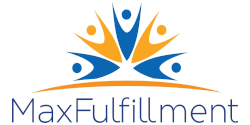Business Excellence Models
(http://www.bpir.com/total-quality-management-business-excellence-models-bpir.com.html)
The models are underpinned by the latest research in total quality management (TQM), business excellence, best practices and benchmarking. These models are used by 100,000’s of organisations worldwide as a basis for organisational improvement.
♦ Baldrige Criteria for Performance Excellence
♦ EFQM Excellence Model
♦ Singapore Quality Award Framework
♦ Canadian Framework for Business Excellence
♦ Australian Business Excellence Framework
Baldrige Criteria for Performance Excellence
This is the model behind the US Malcolm Baldrige National Quality Award, an award process administered by the American Society for Quality (ASQ) and managed by the National Institute of Science and Technology (NIST), an agency of the US department of Commerce. This framework is used as the basis for over 70 other national Business Excellence/Quality awards around the world.
The model consists of seven categories
1. Leadership
2. Strategic Planning
3. Customer & Market Focus
4. Measurement, Analysis & Knowledge Management
5. Workforce Focus
6. Process Management
7. Business Results
The core concepts of the Baldrige Criteria for Performance Excellence are:
· Visionary leadership
· Customer-driven excellence
· Organizational and personal learning
· Valuing employees and partners
· Agility
· Focus on the future
· Managing for innovation
· Management by fact
· Social responsibility
· Focus on results and creating value
· Systems perspective
EFQM Excellence Model
This is the model behind the European Business Excellence Award, an award process run by the European Foundation for Quality Management (EFQM). This framework is used as the basis for national business excellence and quality awards across Europe.
The model consists of nine categories
1. Leadership
2. Policy and Strategy
3. People
4. Partnerships and Resources
5. Processes
6. Customer Results
7. People Results
8. Society Results
9. Key Performance Results
The fundamental concepts that underpin the EFQM Excellence Model are:
· Results Orientation
· Customer Focus
· Leadership and Constancy of Purpose
· Management by Processes and Facts
· People Development and Involvement
· Continuous Learning, Innovation and Improvement
· Partnership Development
· Corporate Social Responsibility
Singapore Quality Award Framework
The Singapore Quality Award (SQA) framework is used as a basis for assessing Singapore’s organisations to the highest standards of quality and business excellence. The award aims to establish Singapore as a country committed to world-class business excellence. The framework and award is administered by SPRING Singapore.
The framework consists of seven categories
1. Leadership
2. Planning
3. Information
4. People
5. Processes
6. Customers
7. Results
The framework is built upon the following core values and concepts:
· Visionary leadership
· Customer-driven quality
· Innovation focus
· Valuing people and partners
· Agility
· Knowledge driven system
· Societal responsibility
· Results orientation
· Systems perspective
Canadian Framework for Business Excellence
The Canadian Framework for Business Excellence is used by Canadian organisations as a management model for organisational excellence and also as the basis for adjudication of the Canada Awards for Excellence. The framework is administered by the National Quality Institute.
The framework consists of seven categories
1. Leadership
2. Planning
3. Customer Focus
4. People Focus
5. Process Management
6. Supplier Partner Focus
7. Business Performance
The following Framework Principles form the foundation for long-term improvement and excellence and permeate the Canadian Framework for Business Excellence:
· Leadership through involvement
· Primary focus on stakeholders/customers and the market place
· Cooperation and teamwork
· Prevention-based process management
· Factual approach to decision-making
· Continuous learning and people involvement
· Focus on continuous improvement and breakthrough thinking
· Fulfill obligations to all stakeholders and society
Australian Business Excellence Framework
The Australian Business Excellence Framework is the premier framework for business excellence in Australia and provides the criteria for the Australian Business Excellence Awards. The framework is administered by SAI Global.
1. Leadership
2. Customer and Market Focus
3. Strategy and Planning
4. People
5. Information and Knowledge
6. Process Management, Improvement and Innovation
7. Success and Sustainability
The framework is built around eight business excellence principles.
1. Lead by example, provide clear direction, build organizational alignment and focus on sustainable achievement of goals.
2. Understand what markets and customers value, now and into the future, and use this to drive organizational design, strategy, products and services.
3. Continuously improve the system.
4. Develop and value people’s capability and release their skills, resourcefulness and creativity to change and improve the organization.
5. Develop agility, adaptability and responsiveness based on a culture of continual improvement, innovation and learning.
6. Improve performance through the use of data, information and knowledge to understand variability and to improve strategic and operational decision-making.
7. Behave in an ethically, socially and environmentally responsible manner.
8. Focus on sustainable results, value and outcomes.
